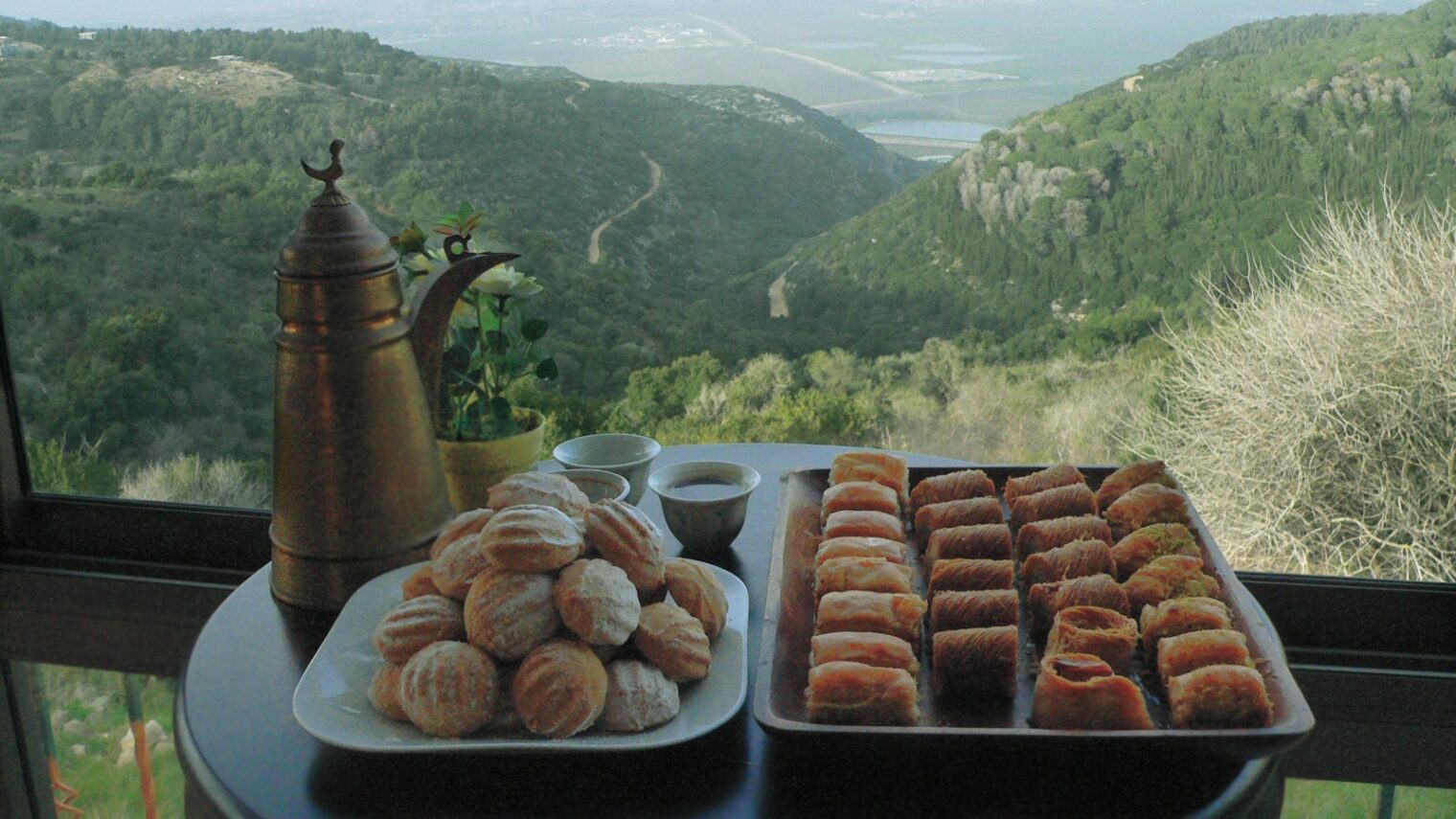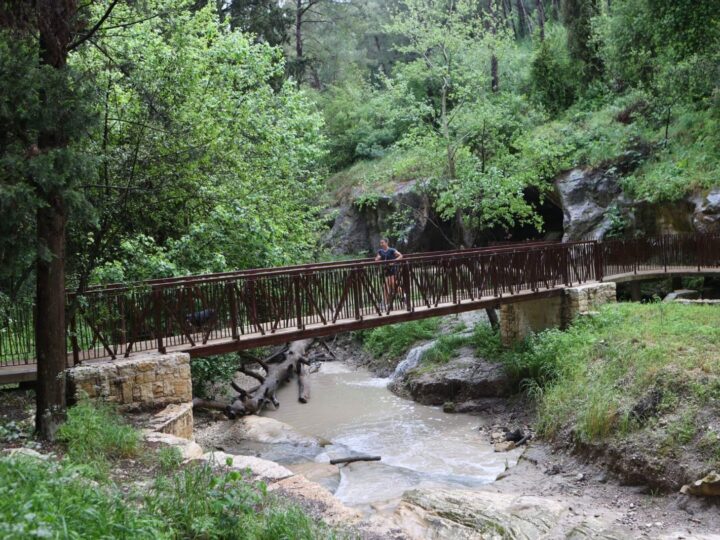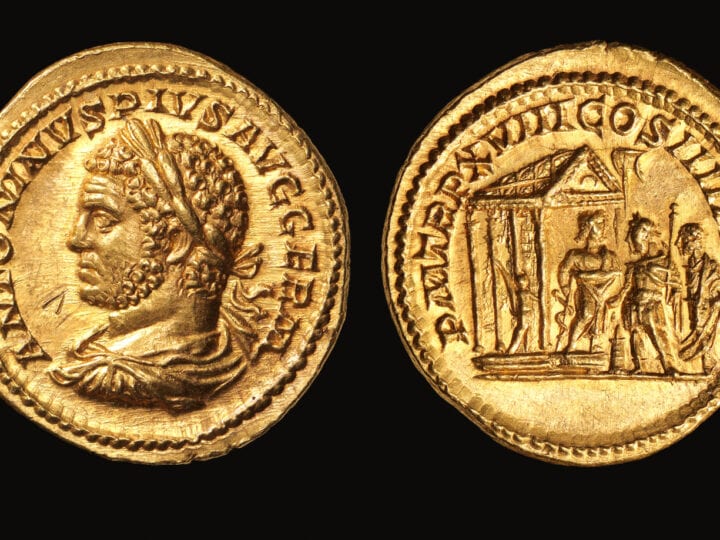They say that Israel is a melting pot of different cultures and religions. The Druze people, a minority who live mostly in villages in the Galilee and Golan, have a unique culture including a secretive religion, colorful markets and a cuisine that is to die for.
We’ve compiled a comprehensive list of how bestto experience Druze food, culture, art and hospitality.
- El Carmel Tours, Usfiya
A project of the Nations and Flavors tour company, El Carmel offers special meals (certified kosher) and tours for groups of 10 or more, with the purpose of connecting groups of tourists to the Druze people of the Carmel Mountain village of Usfiya. Contact info: 972-4-839-0125; avishlomo@012.net.il
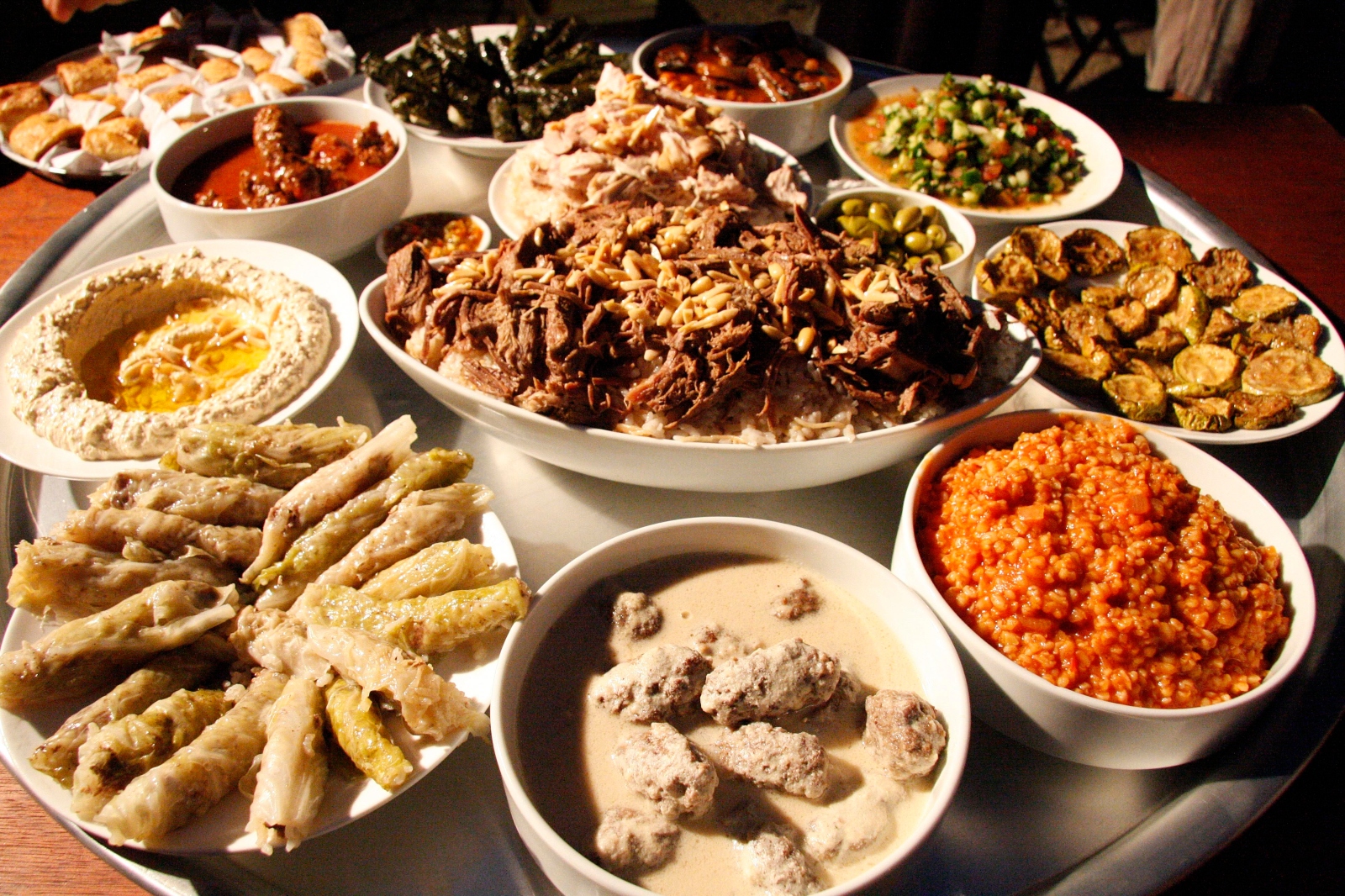
Local guides demystify the everyday life of this complex community. You’ll find yourself heading down alleyways not usually frequented by tourists. You willsee a village prayer house and olive press, and experienceplate upon plate of homemade foodaround the tabun oven, accompanied by darbuka drumming, folklore and stories aboutthe Druze religion, way of life, and role in the modern state of Israel.
A road race unlike any other, the Bishvil Habanim Hadruzim (For the Druze Boys) race was created as part of a larger project to raise awareness of the contribution that Druze soldiers have made to Israeli and memorialize those who have fallen in wars and conflicts.
Approaching its seventh year, with the 2019 race occurring on September 20, the extended 226-kilometer Shvil HaBanim path runs through 18 Galilean Druze villages and includes scenic lookouts and informative memorial sites. It can be walked or biked any time of year.
3. Galileat
Learn about village life in the Galilee from the Muslim, Christian and Druze host families that welcome you into their homes via Galileat for a private or group cooking workshop.
Two hours of hands-on prep, some serious culinary secret divulging, and some strong cardamom infused Arab coffee later, you’ll be sitting down to enjoy the feast you’ve just created.
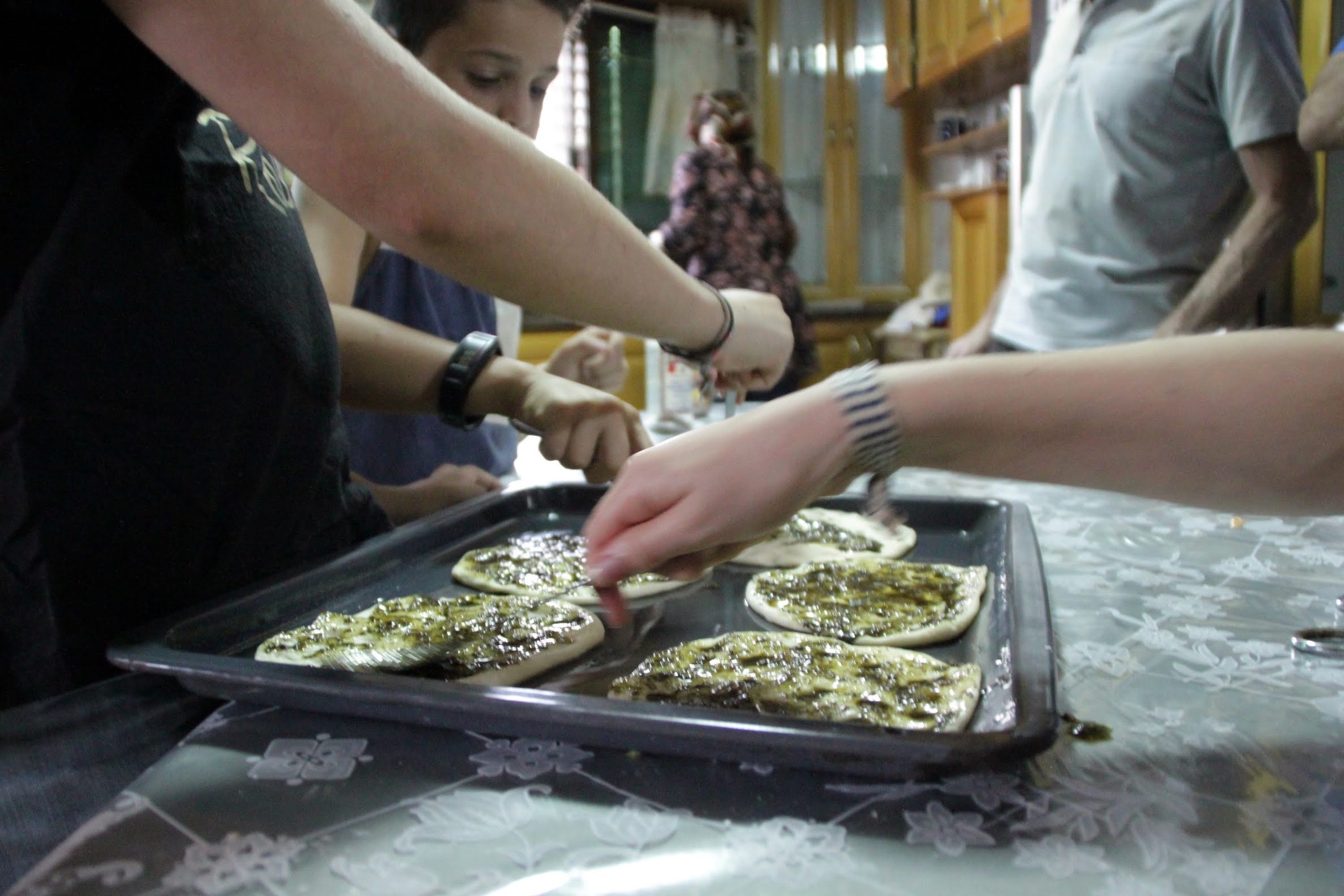
Seasonal menus feature local delicacies such as stuffed zucchini and vine leaves, majadra (bulgur wheat with fried onions and lentils), siniyah (lamb kebabs cooked in tahini sauce), tabbouleh, and even an entire workshop on knafeh, the star of all Druze pastries. Make reservations through website.
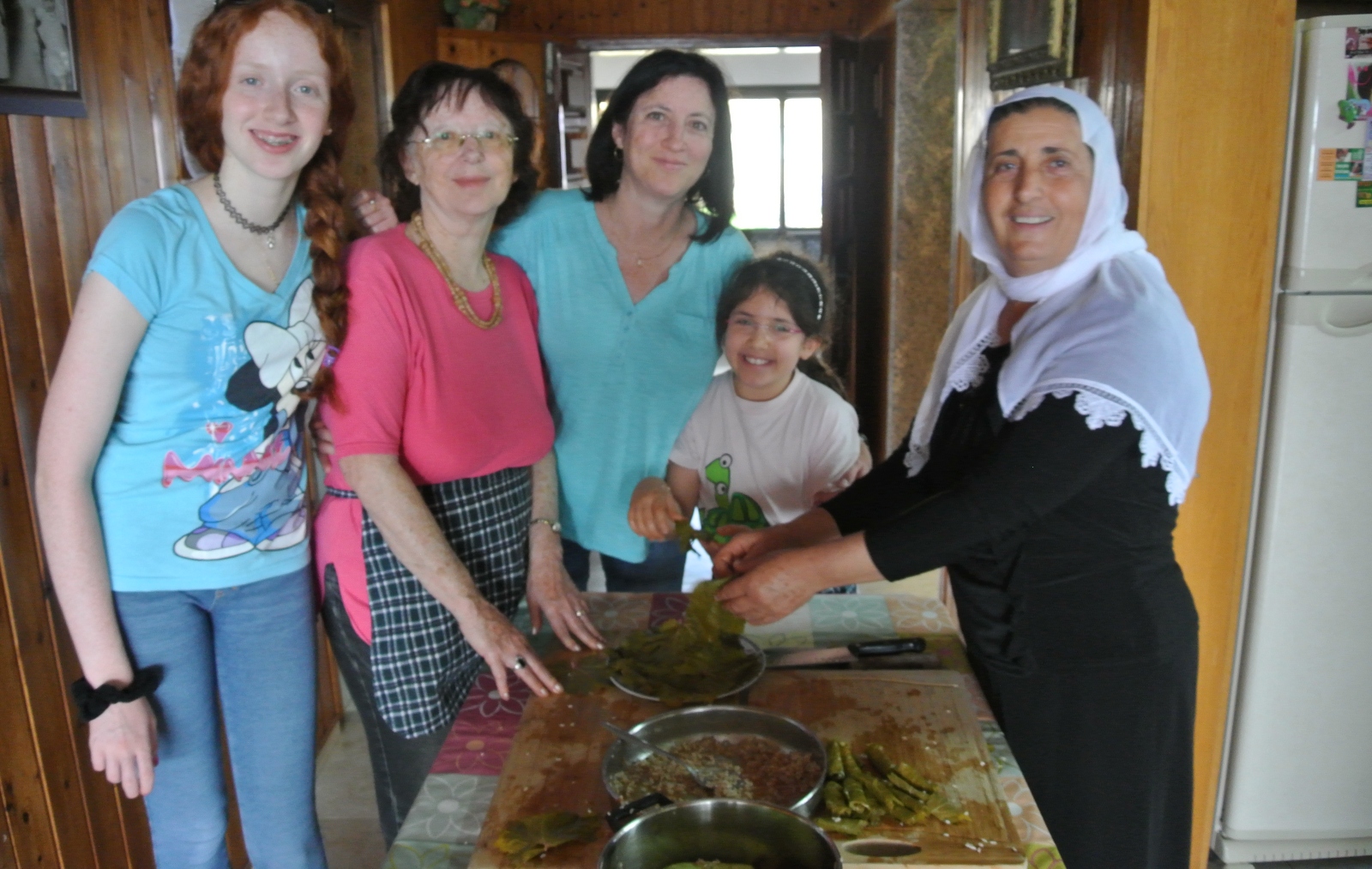
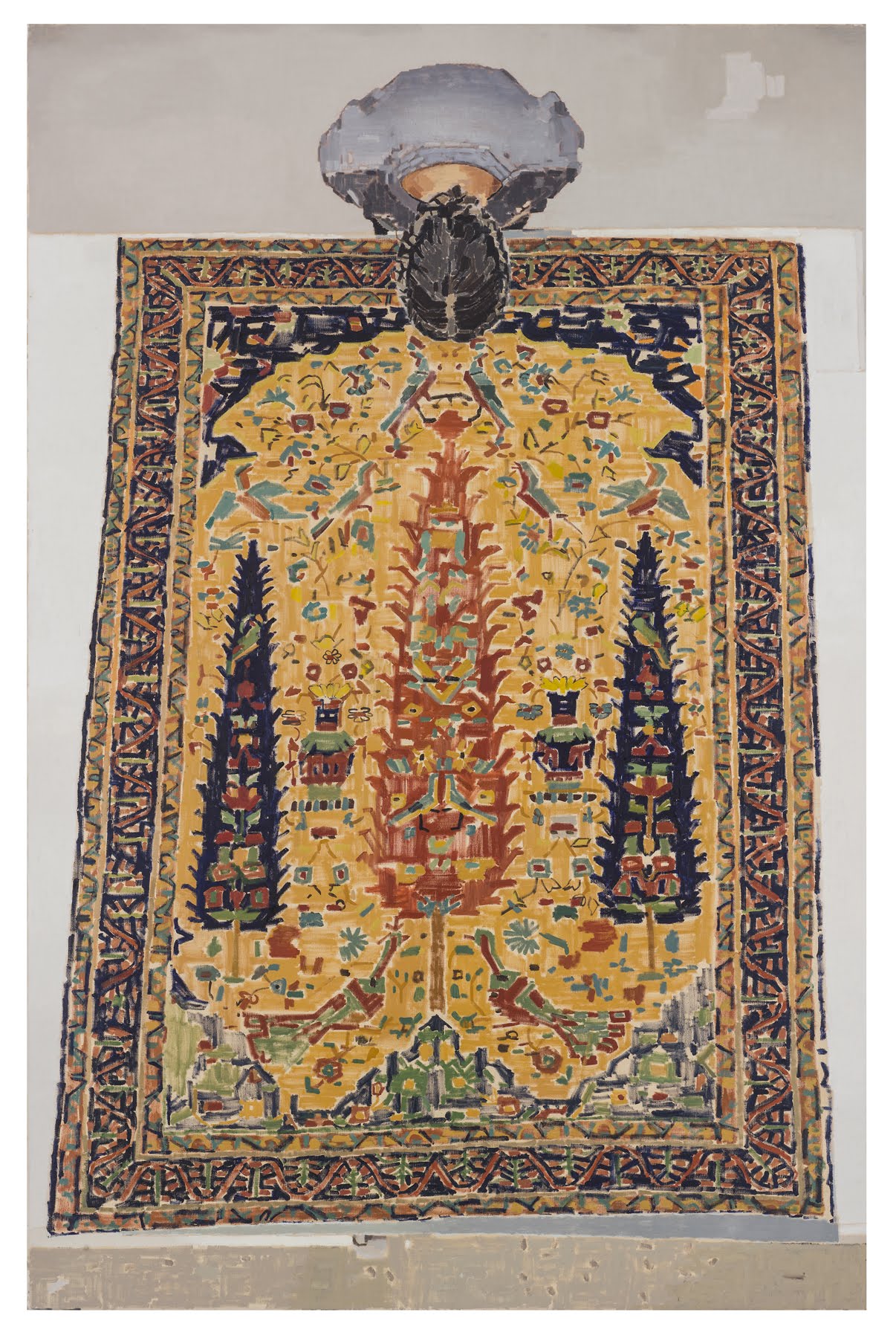
An internationally recognized artist with striking paintings that represent her Druze culture, Fatma Shanan recently moved her painting studio from Tel Aviv back to her home village of Julis in the Upper Galilee.
Having shown in solo and group exhibits in Tel Aviv, Berlin and New York City, Shanan focuses on realistic depictions of village life, and snippets of the things that make life beautiful, among them scenes of the olive harvest, depictions of authentic colorful patterned rugs, and interesting self-portraits.Visits by appointment only.
5. Roadside pita
Perhaps the most authentic Druze experience you can have starts with an impromptu stop by the side of the road. Drive around the Galilee and Golan and you will notice handmade signs along major roads and at the entrances to nature reserves and hiking trails,promising Druze pita, bottles of freshly squeezed olive oil, preserved labane balls, homemade olives and other jarred goods.
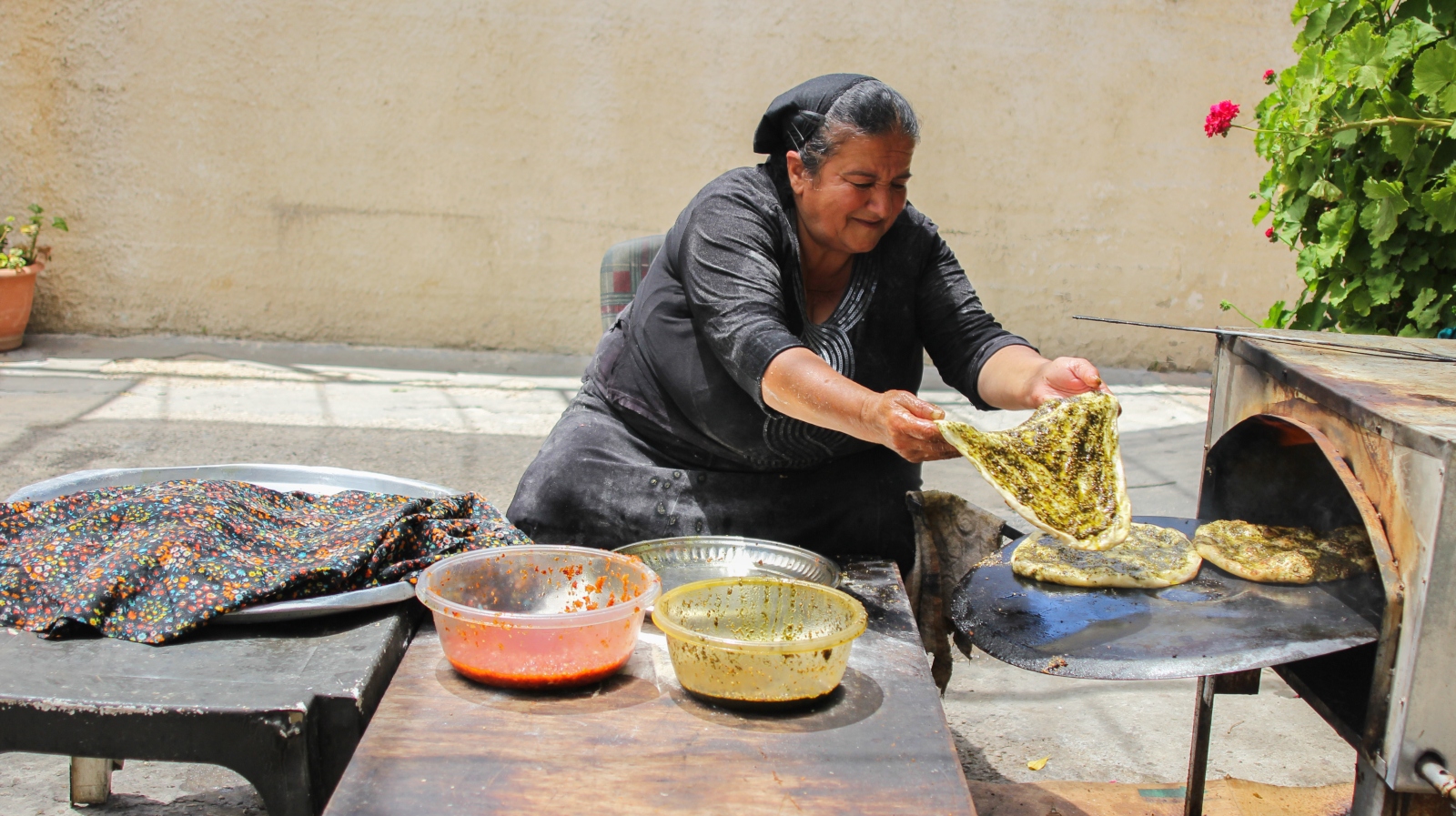
Don’t be apprehensive! Let the signs lure you in for what will probably be the best flatbread you’ve ever eaten, always made fresh on site on the back of a wok-like saj oven. Adventurous eaters can get the pita smeared with sour labane yogurt-like cheese, squirted with fresh olive oil, and topped with the homemade zaatar spice blend of the proprietors. Kids can simply enjoy theirs with chocolate spread.
Our favorites roadside pita stands are just before the entrance to Haifa University: and at the entrance of Har Bental, Golan Heights.
- El Kheir Restaurant, 139 HaNassi Boulevard, Haifa
A piece of the Druze village in Haifa’s busy Carmel Center, El Kheir is the perfect way to have a full Druze dining experience without having to venture farther out to the nearby villages of Daliyat al-Carmel and Usfiya.
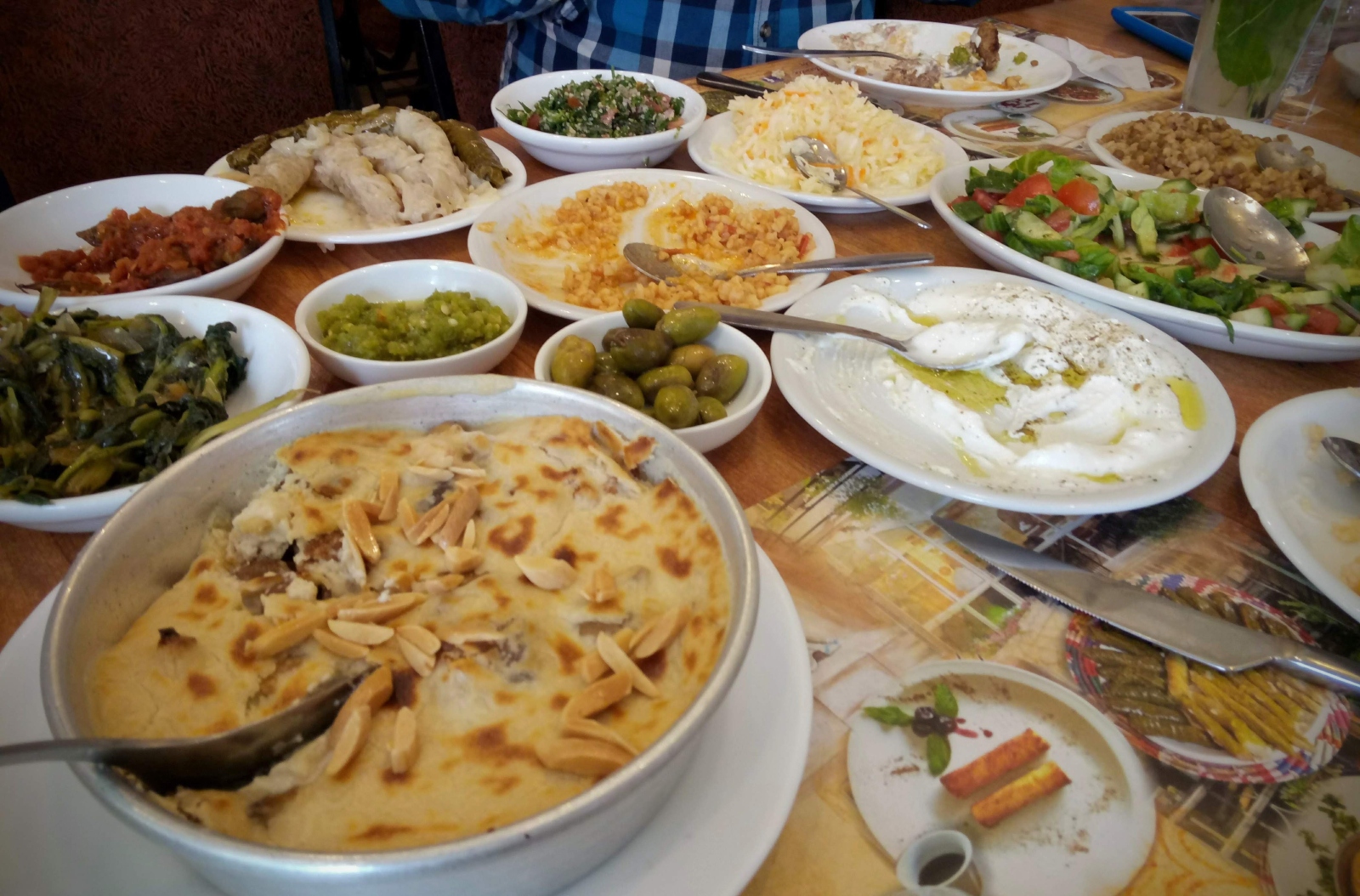
Owner and chef El Kheir Halabi delights in spoiling you with treats that you didn’t even order. Sit back and let him steer your meal to unexpected and delicious places with menu items created solely from the nearby villages’ homegrown products, such as deep dark olive oil, fresh sheep’s milk, cracked olives and young grape leaves.
A trip to the Druze village of Julis can mean more than just procuring some beautiful artwork (see above) and delicious food. Pop by Elmona Garden, the life project of Naji Abas, for a peaceful afternoon stroll around this family-run estate that includes flowering trees, water features, lilypad-laden ponds, bamboo trees, statues, benches, a checkered tile courtyard and a working swing decorated with flowers.
- Bed and breakfast
The Israeli bed-and-breakfast (tzimmer) is the epitome of a romantic country cabin getaway. Usually set in nature with a view, and a hot tub if you’re lucky, these are the places where you can relax and take a break from life.
Tzimmerim run by Druze families are often set in some of the most scenic places and can include all the amenities of a people known for over-the-top hospitality. The family friendly tzimmer Mitzpe Hanof includes a private swimming pool, view overlooking the Sea of Galilee, and a full Druze breakfast.
Farther north, this larger inn set in the foothills of Hermon Mountain is comprised of small unitscalled “White Suites. ”There you have access to an outdoor pool, spa, and a buffet breakfast featuring local delicacies, as well as a view of the mountains along the Israel-Syria border.
A casual indoor/outdoor restaurant with a beautiful courtyard terrace five minutes from the western shores of the Sea of Galilee off Route 65 in the village of Migdal, this breakfast, lunch and dinner spot run by Kassem and Burha Ibrahem must be booked in advance (050-309-5250), but the heart-filled hospitality is certainly worth the trouble.
Offering many vegetarian and vegan options as well as meat mains, and even catering that can be ordered for an event or just as a dinner to take out to your tzimmer, this is a place to stop off for an extended afternoon of relaxation among olive trees, cacti with sabra fruit, interactions with the property’s owners andan occasional horse or free-range duck, and handmade authentic dishes, before heading on your way.
Road 1288, Beit Jann
Creating high-quality skincare products and soaps that are based on the fruits of the village olive oil press and the herbs that surround the village’s Galilean hills, Aya Natural Cosmetics has a visitors’ center in Beit Jann. You can make a day out of experiencing the products, or simply pick some up on your way home at a few small area pharmacies.
Bonus: The Galilean Kitchen Cookbook
When you get home, you may want to recreate some of the Druze delicacies you’ve experienced in Israel, such as kataif, Druze pita, grape leaves, knafeh and hummus. The only English-language cookbook of its kind, this award-winning project by British cookbook author Ruth Neiman chronicles the culinary treasures of rural Galilean cuisine, with contributions from Muslim, Christian, Bedouin and Druze home cooks. It’s available in Israel at Steimatzky bookstores as well as at sites such as Yad Vashem and Ben-Gurion Airport.




